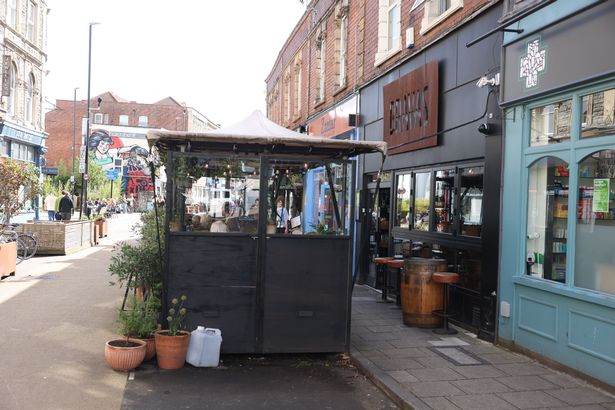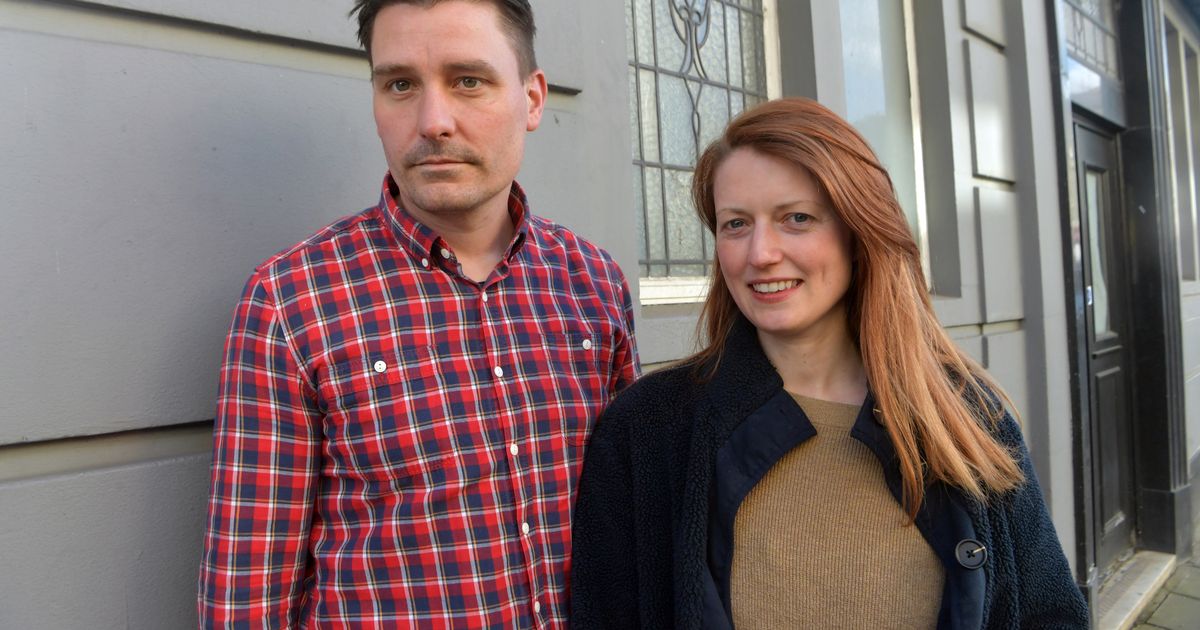Bristol City Council refused permission in June despite huge support
05:00, 26 Sep 2025Updated 11:15, 26 Sep 2025
A popular family-run Bristol tapas restaurant faces a battle to keep its outdoor seating – and its future – after the city council refused permission to let them keep it.
Bravas, on Cotham Hill, installed 12 tables on two terraces during the coronavirus pandemic in 2021, shortly after general traffic was banned from the street.
But when the eatery asked for consent to keep what it has had for the last four years, the council refused on the grounds of inadequate space for emergency vehicles and an adverse impact on the character and appearance of the local conservation area.
Bravas has now submitted a new application hoping to address the reasons for refusal.
At time of publication, the restaurant had support from 19 people with just four against. Co-founder Keiran Waite said the issue was causing the team sleepless nights and that the council’s stance was “enormously damaging”.
He said: “The council being set on tearing down our terrace puts many of those jobs at risk. I don’t believe they have any respect for hospitality as a career or industry.
“Many of our team have children, mortgages, and are full-time employees who have chosen hospitality as their career. We’re also proud to employ young people for their first jobs, apprentices, students funding their degrees.
“They’re employed properly — fixed contracts, guaranteed hours. Without cover and shelter, there are no shifts and no jobs for them.
“The alternative would be to put people on zero-hours contracts and cancel shifts every time it rains, which is not something we are willing to do.”
He said paramedics had told him they could still easily access the street if they parked up nearby and that Avon Fire & Rescue Service had confirmed crews were not impeded in the event of an emergency.
Mr Waite said: “The irony is that the council’s own consultation on the pedestrianisation of Cotham Hill makes clear what people want – 73 per cent said the ambience/atmosphere is ‘nicer’ or ‘much nicer’ since pedestrianisation, directly tied to hospitality use of outdoor space – nearly 70 per cent rated the overall impact on the community as ‘positive’ or ‘very positive’, and written comments referenced a ‘continental feel’ and ‘a vibrant café/restaurant culture’.
“Several respondents specifically said they now choose to visit Cotham Hill to eat and drink outdoors, which they wouldn’t have before.” Restaurant manager Rome Cartageno said: “The decision to refuse the application has been a real blow, especially considering the outdoor space has been in place for over four years with no complaints.
“It’s been a huge part of how we serve the community, especially post-covid, and we feel the refusal is deeply unfair. The potential implications of this ongoing refusal go beyond just us.
“Decisions like this risk pushing out small independents in favour of low-quality, chain-owned venues that prioritise profit over people, place, and food. It’s the kind of shift that could really damage the unique character and soul of our city.”
In planning documents, Bravas’s agents said: “There can be no rationale suggested that the proposal would impact on the ability to maintain the public highway with the external seating areas in place, particularly as they have existed for over four years and the necessary maintenance has taken place.
“Indeed, the applicants would not want to introduce any structure that could potentially affect the maintenance of the public highway or introduce public health issues.
“The proposals are of modest scale and design.
“They have been constructed of lightweight materials so that there is no harm to the appearance of the building or to the character and appearance of the area.
“Indeed, the proposals will preserve and enhance the character and appearance of the conservation area and add vitality and viability to the area.”
 Bravas Restaurant at Cotham Hill in Bristol(Image: PAUL GILLIS / Reach PLC)
Bravas Restaurant at Cotham Hill in Bristol(Image: PAUL GILLIS / Reach PLC)
But in planning documents, the independent Conservation Advisory Panel objects saying: “While the panel supports the enlivening of high streets with external uses, the retention of the permanent structures here would alter the character of the conservation area, resulting in harm.
“There is no clear and convincing justification for their retention.”
Redland & Cotham Amenities Society (RCAS) planning group also objects.
It said: “The pedestrianisation of the street has been very successful and allowed the businesses facing onto the street to take advantage of the area formerly used for parking to set up tables and chairs.
“RCAS supports this but cannot support the retention of the permanent structure which has been built on the public highway effectively privatising public space.
“Other temporary structures which were erected during the covid-19 period have been removed and other businesses have tables and chairs on the highway which can be removed in an emergency or if the street is used for a street party.”
The council’s transport officer said that their previous objections had not been overcome.
They wrote: “The applicant’s position that no objections have been made to the structure, a previous iteration having been erected without any permissions during covid restrictions, is not agreed.
“The council have been in contact with the applicants repeatedly about this structure with a view to its removal.
“The council have also received complaints about this structure separately from other parties.
“The proposed structure does not leave adequate space for a fire tender to operate in this area and therefore is a severe safety concern potentially putting the public at risk in the event of an emergency.”
One objector wrote: “Bravas has colonised both sides of the street, they keep their doors open the whole time they are open, partially blocking the pavement, have set up bar stools on the pavement which when occupied by patrons cause another obstruction, and when there is a queue for a table at Bravas you have to ask people to let you pass because the pavement is completely blocked.”
But a supporter said: “The terrace is not just a physical space, but a symbol of our neighborhood’s spirit and vibrancy.
“Bravas has long been a beacon in our community, serving as a gathering place for both residents and visitors.
“The terrace, in particular, offers a welcoming outdoor environment that enhances the character of our area.
“The closure could have a ripple effect, impacting not just the staff at Bravas, but also suppliers and other local businesses that benefit from the restaurant’s patronage.”
A neighbour added: “Leave them alone, no harm being done and they draw in people from all over the city.
“Outdoor eating in a city is rare, let us enjoy it.”
Another said: “Over the past five years, the terrace has become an essential part of the neighbourhood.
“It’s where friends, families, and neighbours connect over food, conversation, laughter, and sometimes even tears.
“It’s not just somewhere to eat; it’s a social anchor, a place of welcome and belonging.”
